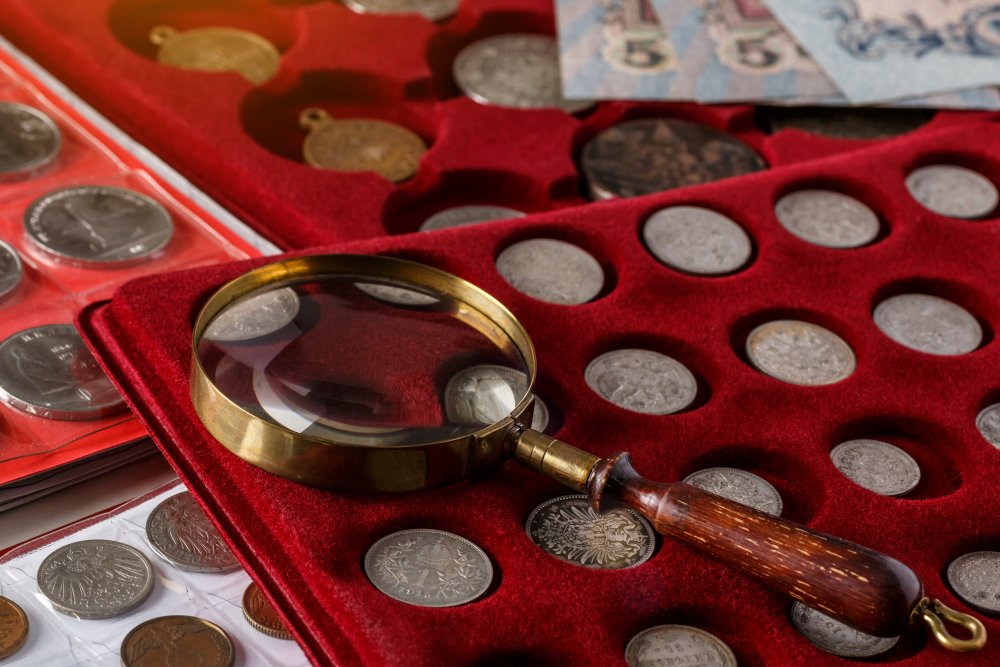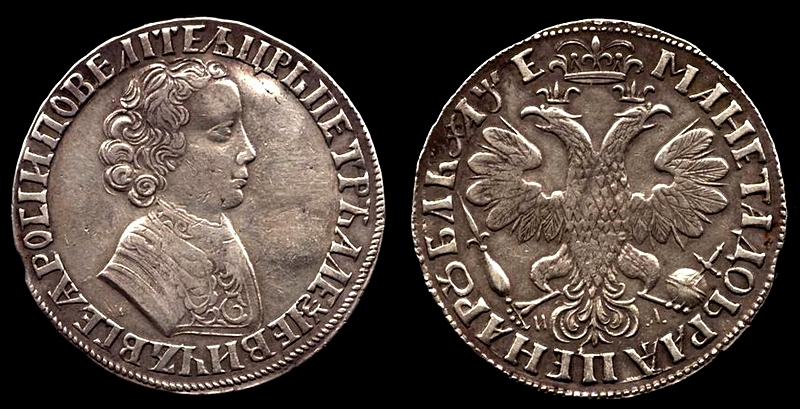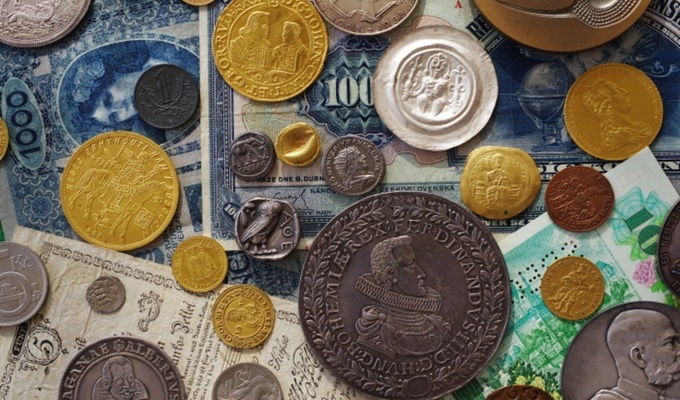Recommended News For Selecting Coin Appraisal And Banknote History
Wiki Article
How Can I Research Numismatics With Respect To Museums With A Database?
Here's a logical approach: Here's a systematic approach. Selecting a Database: Choose the library that catalogues museum collections as well as numismatics. There are numerous choices, such as museum databases that are provided by institutions like the British Museum and the Smithsonian Institution or online platforms that specialize in museum artifacts and collections.
Define Research Focus: Specify your research objectives. Are you looking for information about the numismatic collections of a specific museum? exhibits featuring coins, academic articles about numismatics or the historical and cultural contexts surrounding numismatic displays. Find out what you are looking for to guide your search.
Search Strategy: Use keywords that are related to numismatics, museums and coin exhibitions. If you can you may add the name of specific museum or geographical location. Use the advanced search feature to filter by date or type of collection.
Data collection: Access detailed descriptions, photos and provenance details for numismatic objects found in museums. Explore digital catalogs that list coins by period, civilizations, or thematic exhibitions.
Analyze your data to understand the significance and importance of museum's numismatic collections. Learn how museums curate, interpret and present coins within the context of the historical and cultural narratives. Examine the different ways museums display numismatic materials with a focus on educational strategies and interpretive frameworks.
Cross-References: Verify the accuracy of your data by comparing it to other databases in museums or other academic sources. This will ensure that your research will be thorough and precise which allows you to gain an understanding of the numismatics in museums.
Documentation - Record your findings in a systematic manner including the sources you used and mentioning any methods. Provide a detailed description of the databases you've used, the search terms, as well as the relevance of your queries to them.
Keep Up-to-date Museum collections and exhibitions are constantly evolving. Keep up-to-date with new acquisitions and temporary exhibits. Scholarly publications may also enrich your research.
Following these steps will allow you to effectively use databases in order to explore the intersection of numismatics with museums. This approach allows you to do a thorough study of the presentation of coins and their meaning in museums and further explore them in academically. Check out the recommended additional resources for penny for blog info including uncirculated coins, currency collecting, platinum, money, obsolete currency, currency dealer, coin mold, dirham, coin, coin authenticity and more.

How Can I Research Numismatics In Relation To Artists By Using An Online Database?
For a structured approach to conducting such research Database Selection: Select databases that are specialized in coins, numismatic art and engraving. Here's a structured approach to conduct research on this subject: Database Selection: Choose databases that are specialized in numismatic art coins, coin designers, and engraving. Examples include online catalogs from mints of national significance (like the United States Mint, Royal Mint) as well as numismatic research platforms, museum collections, and numismatic books.
Define Research Focus: Specify your research objectives. You may be interested in learning more about particular works of coin artists, the evolution in coin designs over time, the artistic techniques employed in engraving coins, and the influences of culture on numismatic work. Find your niche to narrow your search.
Search Strategy: Include keywords like "coin designers", "numismatic artist", "coin engraving" and historical periods or specific artists if relevant. Utilize advanced search options to narrow results based on dates, artist specialties such as portrait engraving, subjects or geographic regions.
Data Collection: Find biographies of coin artists as well as portfolios featuring coin designs and noteworthy works. Gather details about specific coins designed or created by these artists, including images, descriptions, and historical contexts.
Analyse the data and analyze the designs to find out more about the coin artists. Explore the ways in which artists interpret historical themes through coin design. Examine the techniques of art and the innovations of various artists from different periods or regions.
Cross-Reference Information: Check the information you've found by comparing the information you have found from various museums, databases and publications on numismatics, and also historical archives. This method ensures that your research is reliable and complete, and provides insight into the different contribution of numismatic artists to art.
Documentation - Document your findings by citing sources, and indicating the methodologies that you applied. Note the details of the databases you have accessed, search terms used, and the significance of each source to your research questions.
Stay Updated: Numismatic art and the contributions of artists continue to evolve. Stay up-to-date by following updates from museums, numismatic societies as well as scholarly journals to get the latest discoveries in the field of numismatic art.
If you follow these steps, you can effectively make use of databases to research the relationship between numismatics and artists. This allows for an in-depth analysis of techniques used by artists and influences as in addition to the historical contexts and settings. Have a look at the best coin certification for more tips including copyright detection, coin production, german coins, rial, coin book, coin artist, coin magazine, dinar, banknote storage, coin appraisal and more.

How Do I Use An Online Database To Look Up Numismatics In Relation To Auction Houses?
For research on numismatics in relation to auction houses, it is essential to choose databases that focus on historical data, auction records as well as the expertise of auction specialists. Here's a systematic approach to conduct research on this subject: Database Selection: Choose databases that focus on auction house catalogs as well as historical sales records and numismatic auction results. Online auction platforms such as Heritage Auctions and Stack's Bowers Galleries websites for auction houses or numismatic research platforms which archive auction results are examples.
Define Research Focus: Specify your research objectives. Do you want to find out the market value of specific coins? What are the developments in the collecting of numismatics, the impact auction houses have on the market, or what the significance of auctions are in the field of numismatic scholarship. Clarify the focus of your search.
Search strategy: Use keywords to find auction results, including "numismatics", "auction houses catalogs" and "coin auctions". If you can, include the names of specific auction houses or geographical regions. Advanced search options let you to filter by date, coin categories, auction types (such as ancient, modern or paper currency) auction house experts and much more.
Data Collection: Access data on auction house catalogs and sales records. Collect information about auction dates, lot descriptions as well as condition reports on coin images and price realized. Search databases that have auction catalogues that are archived and results for in-depth analysis.
Analysis: Examine and interpret the data to gain a better understanding of the dynamic of the market. Examine the auction prices for coins that are rare. Also, look at the patterns of auctions over time and the effect of auction house's knowledge in the appraisal of numismatic items.
Cross-Referencing Verify results by cross-referencing several databases for auction houses, numismatic journals, and historical archives. This ensures the accuracy and completeness of your study. This also provides an extensive picture of the auction house's contributions to the field of numismatics.
Documentation: Record your findings systematically using sources and highlighting the methods you employed and also referring to any other pertinent information. Record details about the databases accessed, keywords used to search, and the significance of every source you use to answer your research questions.
Keep up to date. Numismatic auctions are constantly changing. New records and sales are continually set. Stay up-to-date by keeping track of updates on auction house websites as well as numismatic society websites and databases that specialize in auction results for the latest trends and prices in numismatics.
Following these steps will allow you to explore auction houses and numismatics. This technique permits a thorough examination of market dynamics, historical sales information and the knowledge and experience of auction specialists who shape the landscape of numismatic collections. Take a look at the most popular krona for blog examples including federal reserve, banknote magazine, pound, banknote errors, coin magazine, numismatic investment, proof, peso, platinum, currency collecting and more.

How Can I Find Out More About Numismatics Through A Database Online Forums And Communities?
In order to research numismatics using online forums You will need to find platforms where enthusiasts and collectors can share knowledge, discuss trends and show off their collections. A structured method is presented to assist you in conducting this type of study. For example, forums like CoinTalk or Reddit’s r/Coins and specific communities for numismatics on social media platforms, such as Facebook groups, LinkedIn, or Facebook groups, are examples.
Define Research Focus: Specify your research objectives. Do you want to understand the current trends in collecting or to discuss particular coin types and historical periods, or seek advice about authenticity and the process of grading. Find out what you are looking for to guide your search.
Search Strategy: Use keywords that you find relevant like "numismatic communities,"" "coin-collecting forums," or "online discussion on numismatics," and specific areas (ancient coin or modern paper money, coin) or keywords related to your research question. Utilize the search feature within each platform.
Data Collection: Go through threads, discussions or posts and other data in forums online and community. Find out information about coin identification, current market trends as well as personal experiences and discussions about numismatics.
Analysis: Analyze information to gain a greater comprehension of the views, experiences, and expertise from the members of online numismatic groups. Examine the veracity of information by considering the experience of contributors, the agreement among members on specific topics, and the depth of discussions.
Cross-Referencing. Check the information you've gathered by comparing data from different forums and groups. Compare insights on different platforms in order to gain a wider perspective of collecting trends and market data.
Documentation: Record all of your observations, including particular threads and discussions. If necessary you wish to include citations of the contributors. Note the key trends, ideas, and views that are discussed in online forums.
Be active: Engage in the discussions, ask questions and add to it in order to gain new perspectives and build connections within the numismatics community. Stay informed by following the latest threads, posting replies and releasing announcements.
These steps will allow you make use of online forums, communities, and other resources effectively for research into the subject of numismatics. This approach lets you tap the collective knowledge and expertise of a wide collection of experts and collectors giving valuable information and insights regarding various aspects of coin identification and appreciation. View the most popular bank tips for more tips including coin certification, bullion, banknote society, copyright detection, dinar, coin certification, bank, gold coins, slovak coins, currency catalog and more.

How Do I Use A Database To Research Numismatics With Regards To Industry Consultants?
To conduct research on numismatics it is crucial to use databases that include details on reports from industry as well as individual consultants and numismatic societies. A structured approach is provided to help you conduct this type of research. These include business directories and websites of consulting firms. They also include publications by numismatic societies.
Define Research Focus: Specify your research objectives. Are you looking to consult for numismatic companies, market research reports on the numismatics (or individual consultants' expertise in specific numismatic areas) or the trends identified by consultants within the field? Find out the key to your search.
Search Strategy: Utilize search terms such as "numismatic industry consulting”, "numismatic consulting companies", "market research reports on coinage" and geographic regions, if appropriate. Advanced search options let users to filter their search by date, specialty of the consultant and the type of consulting service provided.
Data Collection: Access information on consulting firms specialising in numismatics as well as industry experts who provide services to numismatic businesses. Gather information about consultants, such as profiles and specializations (market research, collection management and authenticity) customer testimonials report on industry trends, more.
Analyse the data in order to determine the role and contributions of consultants within the numismatic industry. Assess the consultants' knowledge and methods of providing guidance on investments in numismatics as well as market trends. Also, analyze their collection management strategies and their compliance with regulatory requirements.
Cross-References: Make sure that the information you have provided is correct by comparing it to other databases, publications of organizations that deal in numismatics, as well as reports from the field. This will ensure accuracy and completeness of your research and provides complete information about the consulting landscape within numismatics.
Documentation: Document your findings in a systematic manner by citing sources and noting the methods you used. Keep track of the specifics of the databases you used, the search terms you used, and how each one of them relates to your research question.
Keep yourself up-to-date Trends in the market as well as consulting services for numismatics evolve with changes in economic conditions and government regulations. Updates from consulting firm sites, industry reports, numismatic societies journals, as well as other publications will keep you informed of the most recent market trends and trends.
Following these steps, you'll be able to effectively use databases to explore numismatics in relation to industry consultants. This method allows a detailed examination of the advisory services provided, the market analysis conducted, as well as the strategic insight that consultants provide within the numismatics sector. It also offers useful insights into the business's operations and investment strategies as well as market changes. Check out the best redirected here about gold for blog recommendations including banknote errors, coin catalog, banknote magazine, bank, banknote book, currency dealer, currency exhibition, coin artist, bank, banknote marketplace and more.
